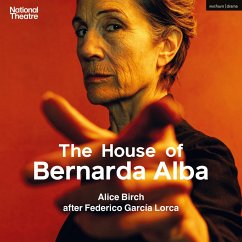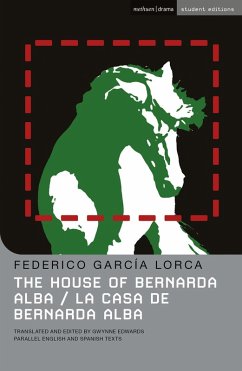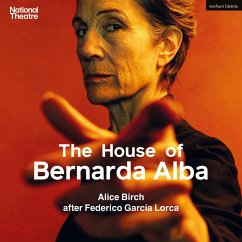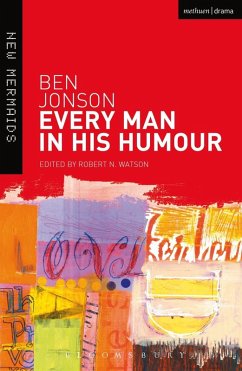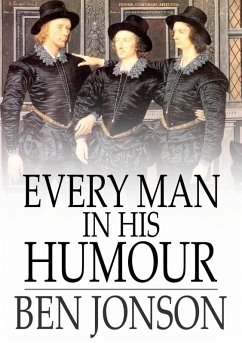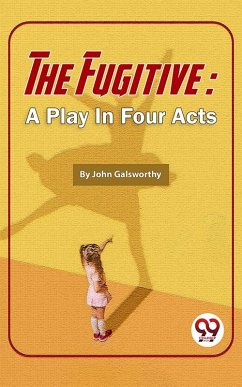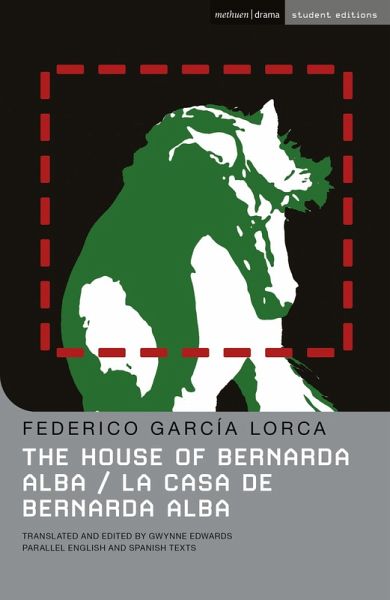
The House Of Bernarda Alba (eBook, ePUB)
La casa de Bernarda Alba
Redaktion: Edwards, Gwynne / Übersetzer: Edwards, Gwynne
Versandkostenfrei!
Sofort per Download lieferbar
9,95 €
inkl. MwSt.
Weitere Ausgaben:

PAYBACK Punkte
5 °P sammeln!
Bernarda Alba is a widow, and her five daughters are incarcerated in mourning along with her. One by one they make a bid for freedom, with tragic consequences. Lorca's tale depicts the repression of women within Catholic Spain in the years before the war.The House of Bernarda Alba is Lorca's last and possibly finest play, completed shortly before he was murdered by Nationalist sympathisers at the outbreak of the Spanish Civil War. Inspired by real characters and described by the author as 'a true record of village life', it is a tragic tale of frustration and explosive passions in a household ...
Bernarda Alba is a widow, and her five daughters are incarcerated in mourning along with her. One by one they make a bid for freedom, with tragic consequences. Lorca's tale depicts the repression of women within Catholic Spain in the years before the war.
The House of Bernarda Alba is Lorca's last and possibly finest play, completed shortly before he was murdered by Nationalist sympathisers at the outbreak of the Spanish Civil War. Inspired by real characters and described by the author as 'a true record of village life', it is a tragic tale of frustration and explosive passions in a household of women rulled by a tyrannical mother.
Edited with invaluable student notes - a must for students of Spanish drama
The House of Bernarda Alba is Lorca's last and possibly finest play, completed shortly before he was murdered by Nationalist sympathisers at the outbreak of the Spanish Civil War. Inspired by real characters and described by the author as 'a true record of village life', it is a tragic tale of frustration and explosive passions in a household of women rulled by a tyrannical mother.
Edited with invaluable student notes - a must for students of Spanish drama




